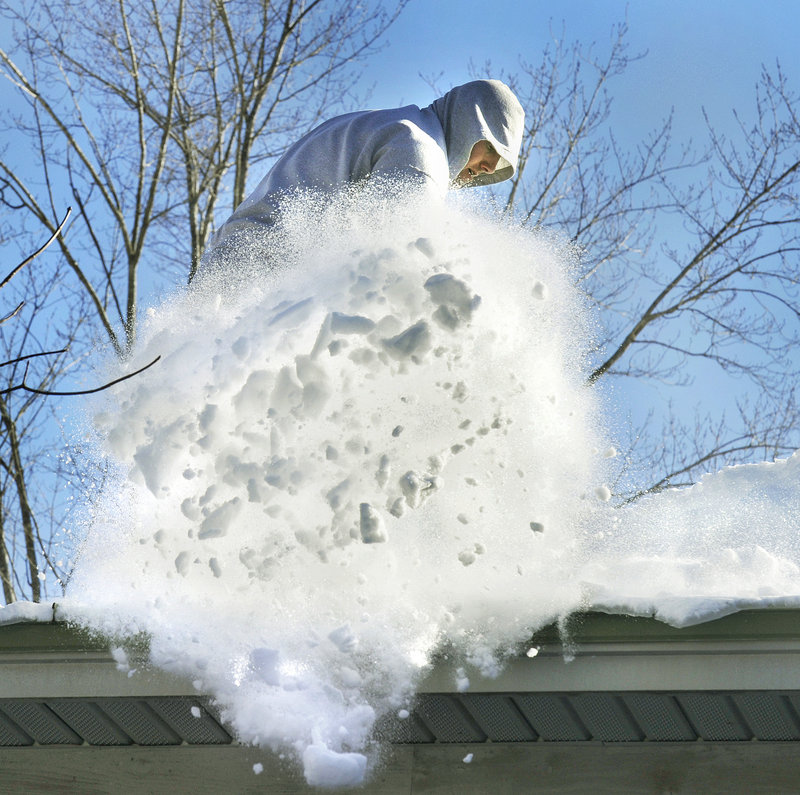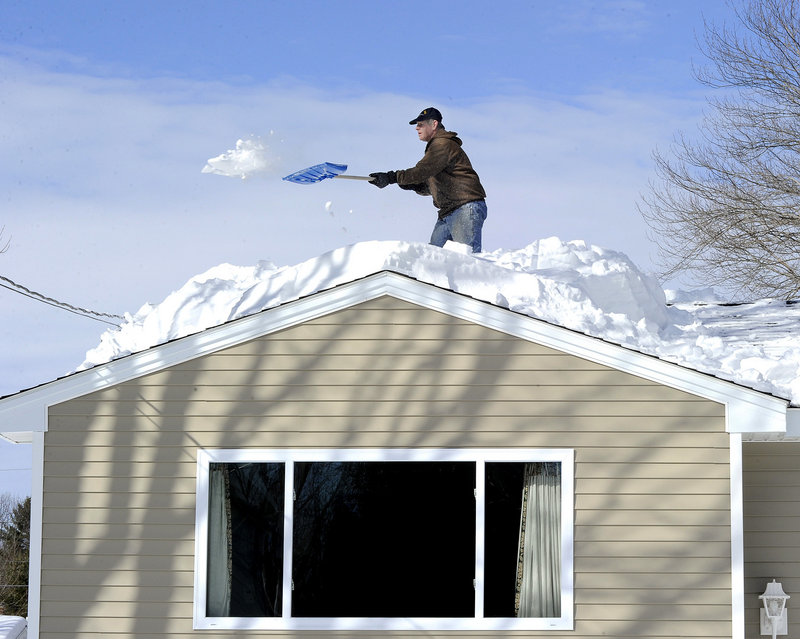Maine has escaped building collapses like those that have happened elsewhere in the Northeast since storms left roofs piled high with heavy snow. But emergency officials are warning Mainers to be aware of the dangers.
“They got some storms we didn’t get hit by, and they got a lot of moisture in their snow,” said Robert McAleer, director of the Maine Emergency Management Agency, referring to southern New England.
“It is something you need to watch — particularly people who have flat roofs — because we don’t know what the next storm will bring,” he said.
Recent news reports have been filled with accounts of schools, stores and businesses caving in or being evacuated.
A Federal Emergency Management Agency report Thursday indicated that Connecticut had had 91 building collapses since Jan. 11, said Robert Bohlmann, director of the York County Emergency Management Agency.
Bohlmann said he is concerned about Maine because rain could dramatically increase the weight of the snow that’s now on roofs.
On Friday, Education Commissioner Angela Faherty sent an e-mail to school officials around the state, warning them about heavy snow loads on buildings. She noted that even newer buildings can be susceptible, and that buildings with additional insulation may accumulate snow that otherwise would melt from escaping heat.
Emergency officials say property owners must be aware of the amount of snow and ice on their roofs. Even on steeply pitched roofs, snow can build up in nooks and crannies and ice dams can become a problem.
“Every homeowner ought to be cognizant of their own structures,” said Jim Budway, director of the Cumberland County Emergency Management Agency. “Like on my own home, I know I have an ice dam up by my gutter.”
While a property owner may be able to safely remove some snow with a roof rake, they should consider whether they need a professional, officials say.
The Better Business Bureau warns consumers to make sure that anyone hired to do such work shows proof of liability coverage and documentation to ensure that coverage is available before snow removal begins.
The bureau also advises consumers to get several estimates, determine what work is included in the price, check references and refrain from agreeing to a contract over the telephone.
Popping and creaking sounds, sagging, severe leaks, disturbances in wood and bowed pipes attached to the ceilings are some signs of a possible problem with the roof, according to Warren-based Horch Roofing.
Staff Writer Ann S. Kim can be contacted at 791-6383 or at:
akim@pressherald.com
Send questions/comments to the editors.




Success. Please wait for the page to reload. If the page does not reload within 5 seconds, please refresh the page.
Enter your email and password to access comments.
Hi, to comment on stories you must . This profile is in addition to your subscription and website login.
Already have a commenting profile? .
Invalid username/password.
Please check your email to confirm and complete your registration.
Only subscribers are eligible to post comments. Please subscribe or login first for digital access. Here’s why.
Use the form below to reset your password. When you've submitted your account email, we will send an email with a reset code.